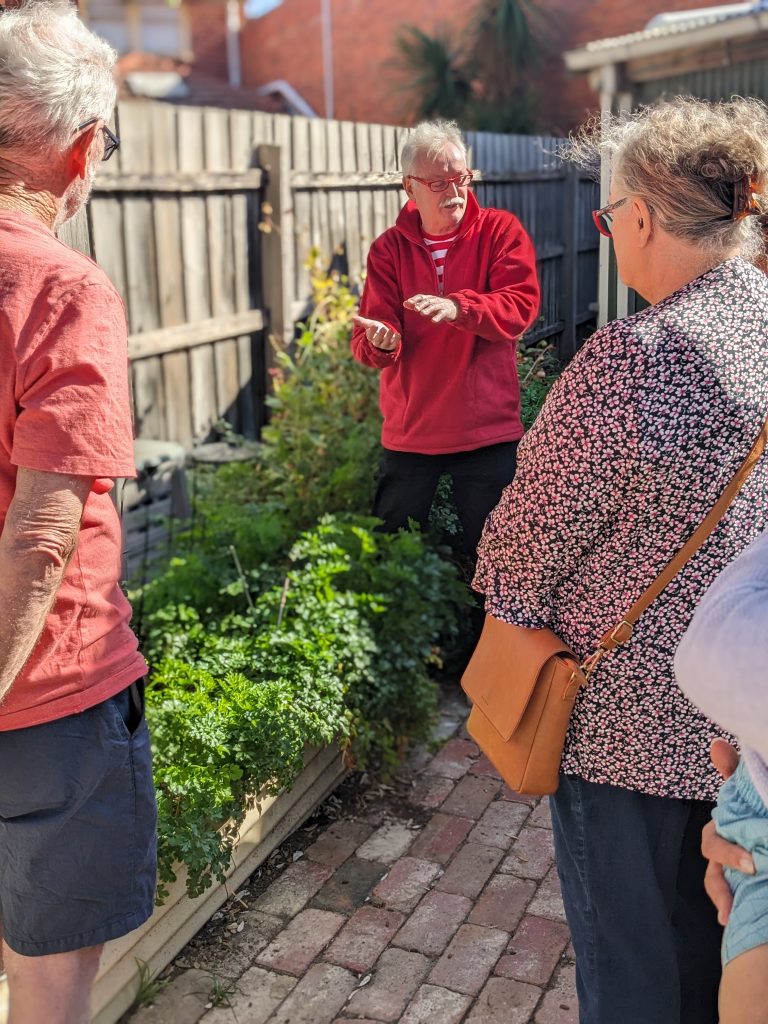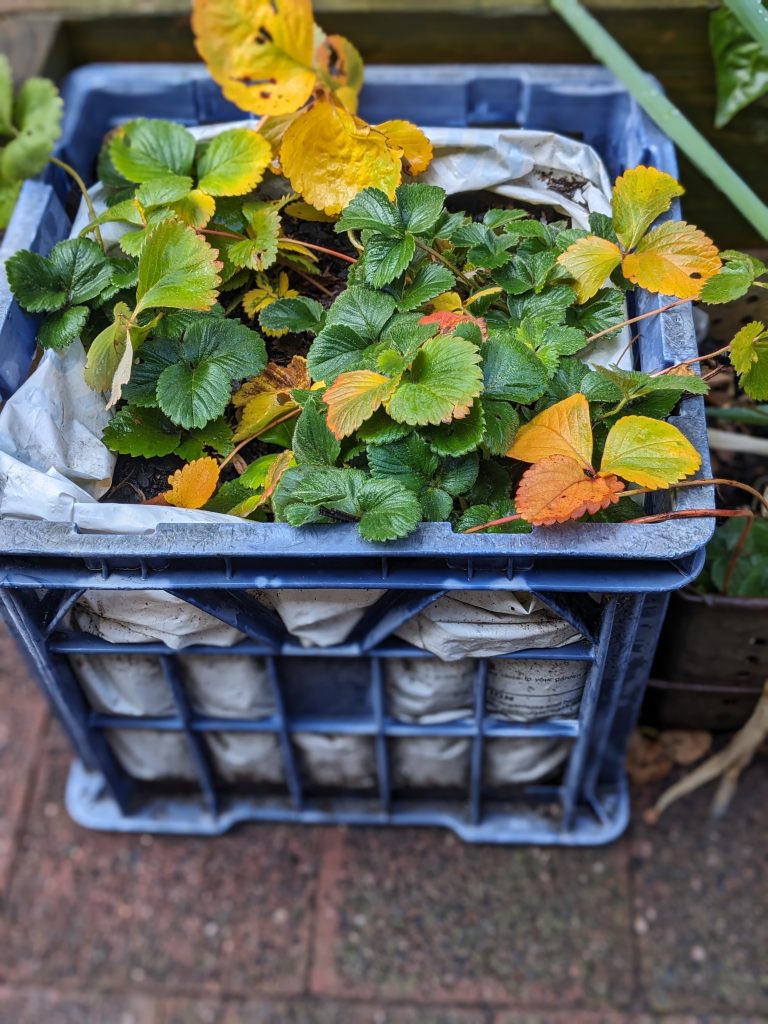Some of my earliest memories are rooted in the garden—no pun intended! Picking sweet corn with Mum for a super fresh dinner, husks and cobs tossed into the compost. Jumping into and scattering the crunching Autumn leaves Dad raked up for the compost. Waking to the clip-clop of Silver the Clydesdale and clink of glass milk bottles on the doorstep. Neighbours collected Silver’s steaming work, let it age, then spread the manure on their veggie beds. The milkman also collected the empty milk bottles returning them to the dairy to be washed and reused. Now that’s a circular economy!
Fast forward to today: corn wrapped in plastic, husks already stripped; leaf blowers replace rakes, and the leaves are taken away; milk sold in an overwhelming array of plastic bottles from the supermarket. What have we lost to so-called convenience? Certainly, we have disrupted: connection, compost, and community, and generated a problem called plastic.
My interest in gardening was fostered by my parents and deepened through studying permaculture. It opened my eyes to a way of life that values resources, respects the earth, and actively reduces waste. That shift changed me, and I’ve made it my mission to help others discover the same.
Did you know food and garden waste makes up to half of a household's waste?
Composting is a simple way to divert this organic material from landfill. If home composting isn’t an option, check for a local community compost hub where you can drop off food scraps and garden waste. These hubs are also great places to learn and connect with others. If there is not one near you, why not start one? Peels (Melbourne only) is a free app that links people with food scraps to nearby composters.
Who would have thought compost could be a social connector?
Another simple method is chop and drop: leave your prunings or clippings on garden beds to break down naturally. It adds nutrients, retains moisture, and suppresses weeds—free mulch and minimum effort.
The council green bin is useful for food scraps like meat, dairy, bread and larger cuttings which are unsuitable for composting — many councils turn this waste into compost for farms, parks and gardens.

Ross Corcoran Smith giving a compost talk at the Sandy Eco Expo.
Source: Kate Stitfold
How many of us buy tools for the occasional job, only for them to gather dust in the shed? Do we all need to own a leaf blower or mower? Have you ever considered sharing your tools with neighbours, within your community groups or garden clubs?
A growing trend in many towns and cities is a “Library of Things” or “Tool Library”. These community or council run libraries lend out tools, camping gear, sewing machines and more, creating a culture of shared resources whilst reducing both cost and waste. If there isn’t one in your area, why not collaborate with a local community group or Men’s Shed to start one. Connecting with the local council is a great place to start as they will be able to offer assistance as to what is available in the area and the potential for start-up grants.
Another option is to start a WhatsApp group among neighbours or fellow gardeners to share tools or bulk-buy potting mix and mulch, cutting down on clutter, and reducing waste. Your WhatsApp group will also be a great way to share garden tips, cuttings, produce, recipes and much more.

Brunswick Tool Library: Source: Internet
Ever stopped to think how much plastic passes through your hands when you garden—from seedling punnets to fertiliser bags and tools?
The ‘convenience’ of plastic is as big a problem in the garden as it is at home. Plastics decompose into microplastics and leach harmful chemicals into the soil which may affect plant health and the microbiome in the soil. Avoiding plastic is the best course of action but can be difficult to achieve. Start small with some creative reuse or upcycling of the plastics already on hand. Join a community or neighbourhood group or garden club and encourage bulk-purchasing of products from local retailers to reduce plastic, waste and costs. It’s not always the most convenient option, but the long-term benefits are worth it.
Here are a few simple reuse ideas (and I’m sure you have some of your own):
A common theme throughout this article is community. I believe it is the strength of community where real change happens. The connections, collaborations and sharing of ideas and knowledge is how we relearn to value the resources we have on hand, respect the planet and reduce our waste.
Want to take the next step? Here are some ideas to try or share in your community:

Reused potting mix bags and crate rescued from hard rubbish.
Source: Kate Stitfold
"*" indicates required fields